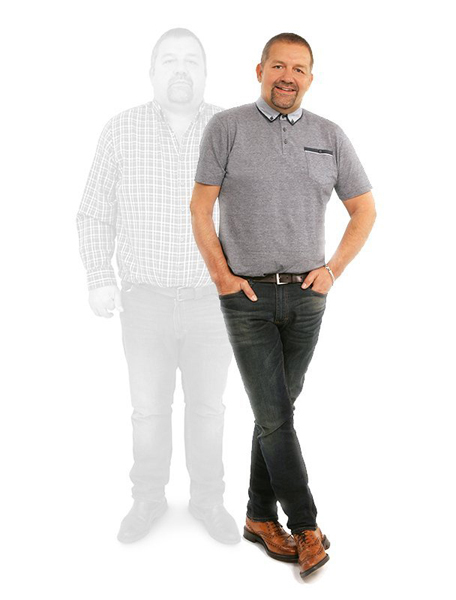Alevere is a highly effective weight loss treatment delivering unbeatable results, safely under medical supervision by dedicated doctors and medical professionals, without the need for surgery or drugs.
We have successfully treated thousands of patients,
at a network of clinics across the UK, for over 18 years.
Our clinics provide a highly specialised nutritional treatment, combined with the latest non-surgical therapies, to restore body shape and skin elasticity.
Alevere. Be transformed. Feel amazing.

Alevere is a highly effective weight loss treatment delivering unbeatable results, safely under medical supervision by dedicated doctors and medical professionals, without the need for surgery or drugs.
We have successfully treated thousands of patients, at a network of clinics across the UK, for over 18 years.
Our clinics provide a highly specialised nutritional treatment, combined with the latest non-surgical therapies, to restore body shape and skin elasticity.
Alevere. Be transformed. Feel amazing.
Trustindex verifies that the original source of the review is Google. This is honestly the best diet i have been on and i have tried many and failed! I originally spoke with Chris who told me about the diet and really caught my interest and after lockdown putting on weight i really wanted to get it off! the staff are so friendly and professional and always are at hand to help with any queries, the ordering systems is so easy and simple to use thank you to everyone at the clinic especially Chris, Natalie and Allison its been amazing would defiantly recommend this to anyone trying loose weight and get healthyTrustindex verifies that the original source of the review is Google. I started this journey at The Silverlink after trying for 2 years, to loose even a couple of pounds. I was a little sceptic, at how this will work and would it work for me. Well after 12 fast weeks, 2 stone has gone. I feel the time has gone by quickly, with every week having positive results. I never had the need or want to cheat as I always felt satisfied. The treatments at the clinic was carried out by lovely professional ladies, who always had time to chat about any concerns. I would defiantly recommend to give this ago, it will work. They have shown they are committed to being COVID safe, taking time to ensure yours and their safety.Trustindex verifies that the original source of the review is Google. The staff were great. Its tough but the reward fantastic. Thanks Alison and gang.Trustindex verifies that the original source of the review is Google. I have lost 6 stone in 18 weeks with Silverlink. To be honest, the results have changed my life enormously (I would think this applies to others that have done the same). I would recommend this to anyone that wants to truly lose weight. I would like to thank everyone at Silverlink for all the support they have given me. It is not just the "treatment” but also the back up support. The clinic I attended was very supportive, professional and a driver to achieve my goal. Thanks again to you allTrustindex verifies that the original source of the review is Google. From the first phone call to the clinic I felt reassured. The support that I received along the way was excellent, professional, discreet and helped guide me along my personal bumpy journey. I started weighing 15 stone 6 now I am 12 stone 7 I feel amazing and know that I have the support from good people as I’m now in maintenance. I cannot believe the number of complements about my change that I am receiving from people I barely know and I’m proud to say who helped me get there. Thank you Silverlink clinic you are all fantastic.Trustindex verifies that the original source of the review is Google. I have been at Silverlink Newcastle for 6 months and have lost nearly six stones. The staff are lovely and supportive and the doctors listen to what you say. I struggled for a while as I have a very active job but the staff listened to my problems and adapted the plan for me accordingly. I have been trying to loose weight for 40 years and this is the first time I have been successful. Thank youTrustindex verifies that the original source of the review is Google. There are a million and one things that I could put down as valid reasons as to why the Silverlink Clinics has not just helped me to lose weight, but has also had a vast effect on other things that I medically have, including anxiety and transitioning from borderline diabetic, to no longer being near that borderline. The whole team at the branch that I was at - Newcastle - are so welcoming and are always positive and kind towards you, however I would assume the same for each branch for the work they do. The treatment is very effective and if you decide to use the Silverlink Clinics, you are not losing out on a very much fantastic choice for your personal health. During your treatment, the staff have a broad and impressive knowledge about how the diet plan works and alongside your actual treatment sessions, support from the clinic via telephone is given. Also, the staff are always easily accessible in case you wish to call during your treatment with any worries or questions that you may have. All who work at the clinic are always ready to ensure that you follow the diet plan correctly and that the support is there to help you make the best outcome for yourself. You also have guidance to help maintain your new weight once the treatment is finished. Giving a five star rating, from my personal experience, is only half of the rating I feel necessary, as I now have a new weight and most likely now a higher chance of living life longer.Trustindex verifies that the original source of the review is Google. The staff are very helpful and knowledgeable and there is also the added phone backup to make sure your happy with how your treatment is progressing. Never felt hungry throughout the treatment and always different ways to make the meals different. Would be wrong to pick out individuals as all were fantastic and because of this I have no problem with recommending the Newcastle Silver link clinic. Jim PetersTrustindex verifies that the original source of the review is Google. Staff are very friendly and have made me feel comfortable and helped me achieve my goal.
Many people have problems with their weight and body shape. These are very common and can result in a lifelong battle. Furthermore, being overweight can lead to poor physical and mental health and low self-esteem.
Conditions such as high blood pressure, diabetes and high cholesterol can develop, leading to serious illnesses such as heart disease and strokes.

Many people have problems with their weight and body shape. These are very common and can result in a lifelong battle. Furthermore, being overweight can lead to poor physical and mental health and low self-esteem.
Conditions such as high blood pressure, diabetes and high cholesterol can develop, leading to serious illnesses such as heart disease and strokes.
Our weight loss treatment has been developed to optimise the body’s chemistry for a rapid, effective and continuous breakdown of stored fat, whilst preserving muscle tissue.
This avoids any unpleasant side effects of weight loss and, as a result, you will not feel hungry, weak or lethargic.

Our weight loss treatment has been developed to optimise the body’s chemistry for a rapid, effective and continuous breakdown of stored fat, whilst preserving muscle tissue.
This avoids any unpleasant side effects of weight loss and, as a result, you will not feel hungry, weak or lethargic.
The most important aspects of our weight loss treatment are the stabilisation stages and our aftercare programme, Alevere Balance.
We will support you in maintaining your weight with advice from our specialists.
Regular reviews, health monitoring and detailed nutritional guidance will help you maintain a stable and healthy weight.

The most important aspects of our weight loss treatment are the stabilisation stages and our aftercare programme, Alevere Balance.
We will support you in maintaining your weight with advice from our specialists.
Regular reviews, health monitoring and detailed nutritional guidance will help you maintain a stable and healthy weight.
Copyright Alevere Nutrition - 2024 All Rights Reserved

Best thing since a slice of cake.! After seeing a picture of myself at Christmas 2015, l decided to do something so l took the plunge and phoned Alevere. Hard bit done, the diet is simple, follow it as advised, and watch the pounds fall off, and they literally did. The hardest thing is walking through the doors, but remember everyone there is in your shoes. I feel 21 again.
Ian Kitchingman
Click the button below to continue with your registration: